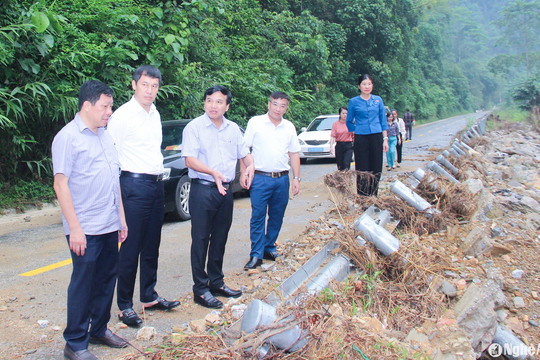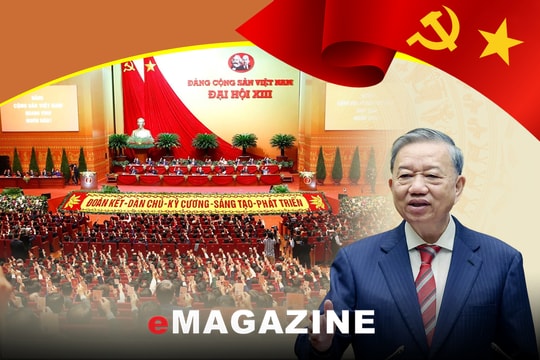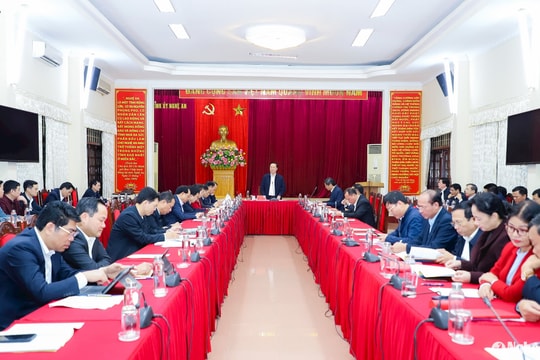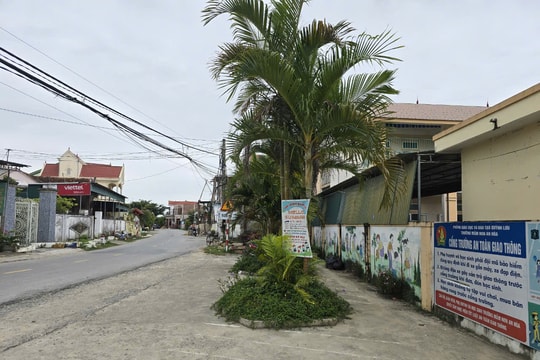Praise and criticism must be correct and clear.
(Baonghean.vn) - All cadres, party members, and our people want and demand that cadres, no matter how big or small, must be clean, for the country and for the people. So we must distinguish between good and bad cadres in order to praise and criticize correctly and clearly.
Perhaps people in every locality have the habit: Every time there is an election, when the leadership apparatus at all levels is reorganized, people review and "examine". In that, they look at how many people are in their village, commune, district, or province, who are leaders at this or that level. People are proud of them, give them respect, and consider them successful people. But they also often think: Everyone has a "corner" for their brothers, relatives, hometown, and hometown; everyone considers "blood is thicker than water", "homeland is a bunch of sweet star fruit", and even considers it as "a resource", a "support"! Not only the people but also some cadres and party members sometimes have such thoughts. That is a remnant of feudal and small-farmer ideology that is still left behind. That is why there has been a saying since ancient times: "When one person becomes an official, the whole family benefits!"
There are people who work as cadres and leaders, always taking care of their work to fulfill their responsibilities, living honestly, uprightly, and living on their fair salary. However, there are also people who wonder: In the countryside, there are still many villages and hamlets with very bad roads, many poor houses, and degraded schools, but I don't see him or her helping at all? There are also people who say bluntly: He or she is a big shot, but many of his relatives and siblings who went to university cannot find a job; when he or she returns to his or her hometown, their contributions only add a few million VND, which is not worth much... Many people criticize him or her as being old-fashioned, outdated, lacking dynamism, lacking affection, and not closely attached to his or her homeland.
On the contrary, there are also people with limited abilities but "smart in eating and living", and in just a short time they have become rich. Every time he returns to his hometown, he gathers, invites people to eat and drink, and celebrates lavishly. He uses all branded, expensive goods, and talks about "modern business"! Sometimes he even brings along very rich "disciples", willing to invest hundreds of millions of dong in the locality, and tens of millions of dong for his brothers, friends, and relatives to go sightseeing, travel, etc. He has a lot of land, and lives in a very luxurious villa, like a little king. Many people praise him as an innovative, dynamic, and modern person, so he is both successful, rich, and devoted to his hometown.
There are even high-ranking and powerful officials who are very "concerned" about the affairs of their subordinates and their hometowns. Every time they plan land, they "raise questions"; every time they evaluate and promote subordinates, they write letters, call, and influence their relatives, children, and friends, regardless of the fact that every level has plans and procedures according to regulations. They themselves "make things difficult" for their subordinates, demotivating good officials.
All cadres, party members, and our people want and demand that cadres, no matter how big or small, must be clean, for the country and for the people. We need cadres who always live honestly, simply, healthily, and transparently, always putting collective interests above local and personal interests, and truly "Diligence, thrift, integrity, impartiality." So we must also distinguish between good and bad cadres in order to praise and criticize them correctly and clearly.

Reality shows that there are many leaders who spend their whole life taking care of their work, are straightforward, not greedy, not selfish, not partial, not selfish, pure, healthy, live and work seriously, for the common benefit of the collective, of the community. They have self-respect, maintain integrity, they are not rich but are respected by the collective, colleagues, and people. If you ask them for tens of millions, where will they get it? These are people who deserve to be learned from and honored.
But there are also leaders who take advantage of their positions, powers, and influence to illegally enrich themselves; they cultivate their own interests, their local interests, and their moral and lifestyle degradation, which must be fought and prevented before they "self-evolve" or "self-transform". Praising such people is no different than us being accomplices to "internal invaders".








